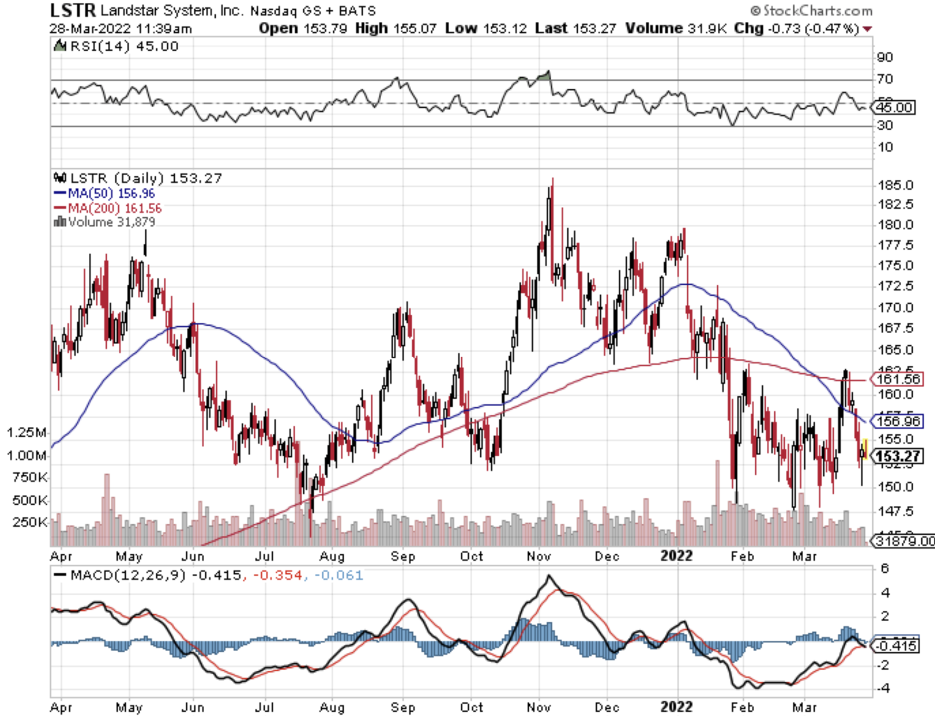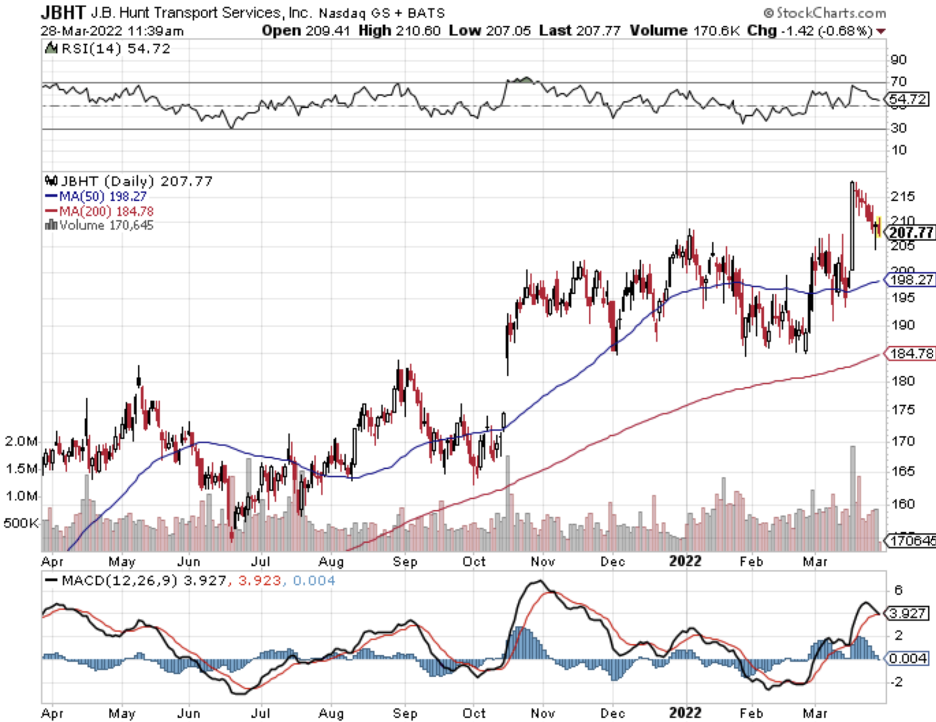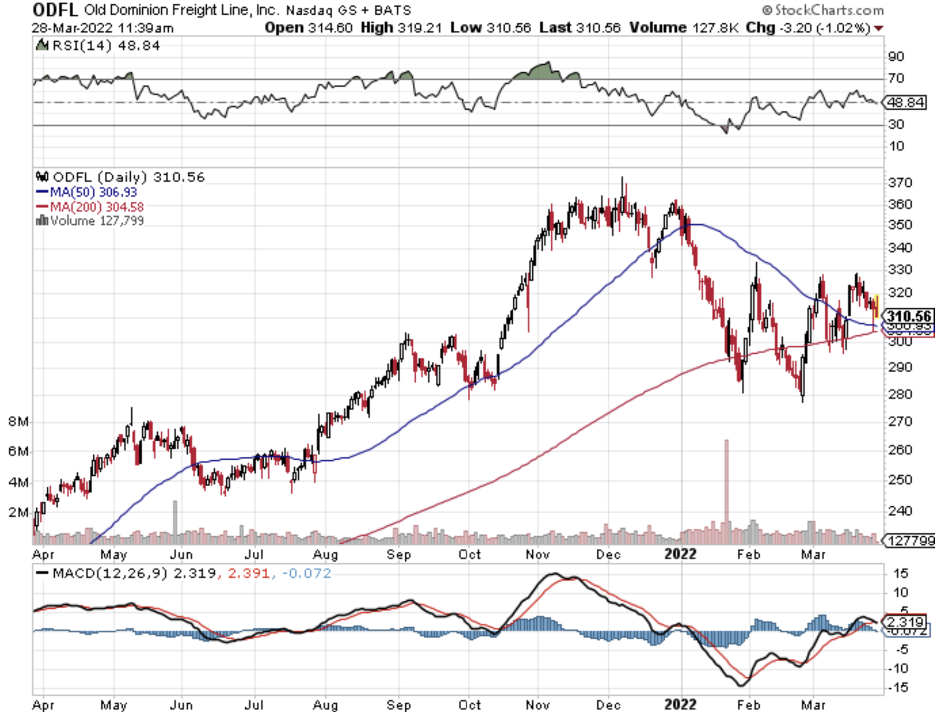The Tech Panacea to Logistics
Sure, technology is advancing at a rapid clip, many of us try to harness it for the better as well as make a little coin from it.
A new tailwind is arriving just at a time when investors have been sick and tired of the barrage of inflation news.
Honestly, I am sick of it too.
Even if oil somehow goes to $300 per barrel, which it won’t, but just visualize that it does: automation will bail out the logistic industry.
This is what we have been waiting for, and it’s coming down the pipeline whether we are ready for it or not.
Self-driving technology is almost a generation old and yes, there have been massive improvements and the part of the world this will first filter down to isn’t individuals, but commerce.
Logistic companies are chomping at the bit to integrate this technology into long-haul transport routes.
We are just about there, as the dearth of truck drivers in the United States has slowed to a crawl.
Apparently, most don’t like to sit and drive all day!
It’s also not a secret that many of the employed truck drivers are not Americans; visa issuance was almost entirely halted for 2 years during the health situation, and these workers must be coaxed into immigrating in order to truck drive from places as far as Uzbekistan and Honduras.
On arrival, salaries are dreamy, with starting pay up to $70,000 per year and closer to $100,000 per year for experienced drivers.
Yet, there is still a massive shortage of drivers, much like construction workers, today.
Well, that’s all about to change because many parts of the United States won’t need that long-haul driver anymore to shuttle around goods.
Automation is transforming the trucking industry as self-driving trucks are already on America's highways, currently in the testing phase, as a new study warns up to a half-million jobs are at risk of being displaced by robots.
The integration of automation in long-haul trucking could replace 97% of human truck drivers, the equivalent of approximately 550,000 jobs.
Researchers developed several automated trucking deployment scenarios, including deployment in southern states, deployment for journeys more than 500 miles, and widespread deployment across the country.
This study was the first to combine a geospatial analysis based on shipment data with explicit consideration of the specific capabilities of automation and how those might evolve over time.
Depending on the scenario, they found the rollout of automation may have up to a 94% impact on long-haul operator hours, equivalent to up to 550,000 jobs that could be displaced.
Researchers received feedback from trucking companies, logistical experts, and tractor-trailer operators to develop a roadmap for the automation rollout within the trucking industry.
At the bare minimum, the highway part of the automation is solved, allowing technology to solve other parts of the logistical conundrum.
Long haul is first and foremost the easiest part of the equation and I am talking about those large stretches of hundreds of miles that require trucks to merely drive in a straight line.
Certainly, the “last mile” challenge is a whole different animal with navigating through narrow city streets that include one-way streets much harder to just program up in software.
Trucks move 70% of U.S. freight in weight, and labor and fuel costs pressure logistics companies' margins, forcing them to raise shipping rates or face margin compression.
The current dilemma of astronomical oil prices is forcing logistic companies to make some real headway into this much-awaited technology.
Putting the kibosh on costs is sometimes impossible to do, but with this shift on the horizon, logistic companies are about to get a lot more profitable very quickly.
Think about it: truck drivers get tired, perform worse than automated technology, and eventually want to unionize.
Getting rid of the human will result in cost savings, and no need to worry about the immigration process that currently has severe backlogs of over one year because of the Covid knock-on effect.
Eventually, Americans will be able to receive their Amazon package for cheaper in the future with the logistic companies able to pass on some of the savings to the end-user.
Win-win situations are hard to come by in this day and age, but this is definitely one of them.
Stocks in this space poised to win from this new technology are Landstar System (LSTR), J.B. Hunt Transport (JBHT), Old Dominion Freight Line (ODFL), Knight-Swift Transportation (KNX), and Covenant Logistics Group (CVLG).




